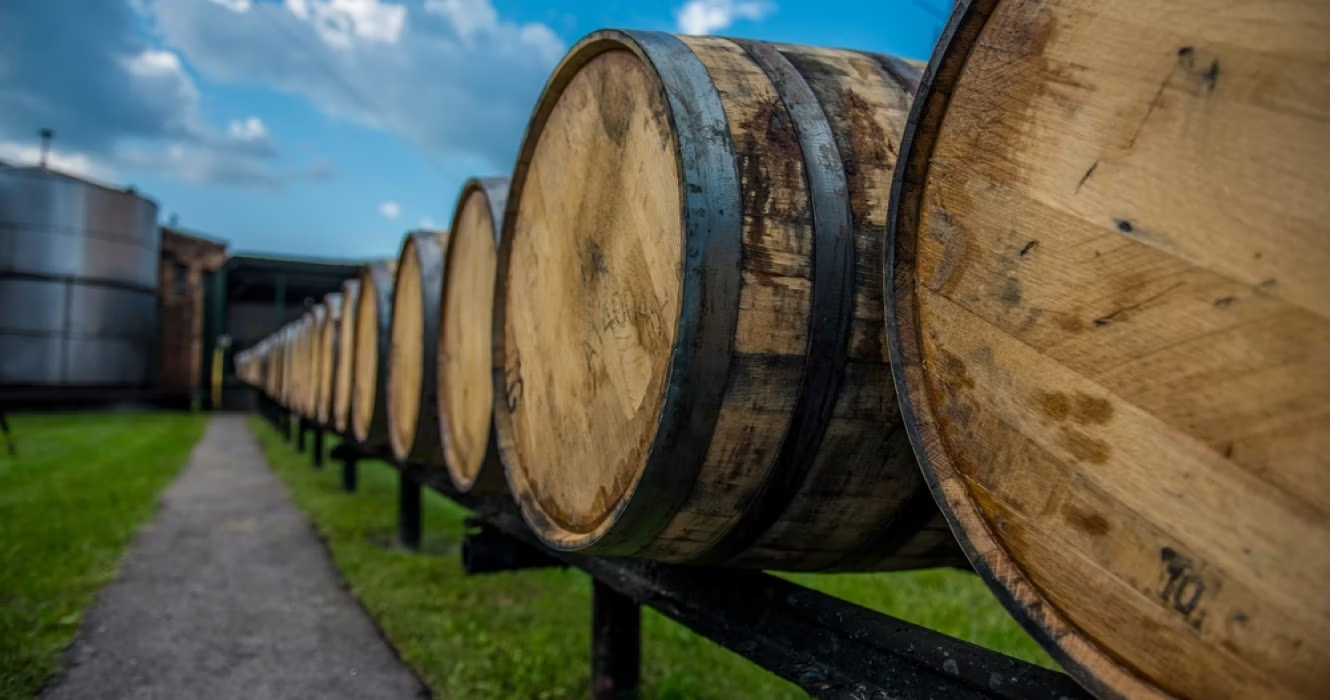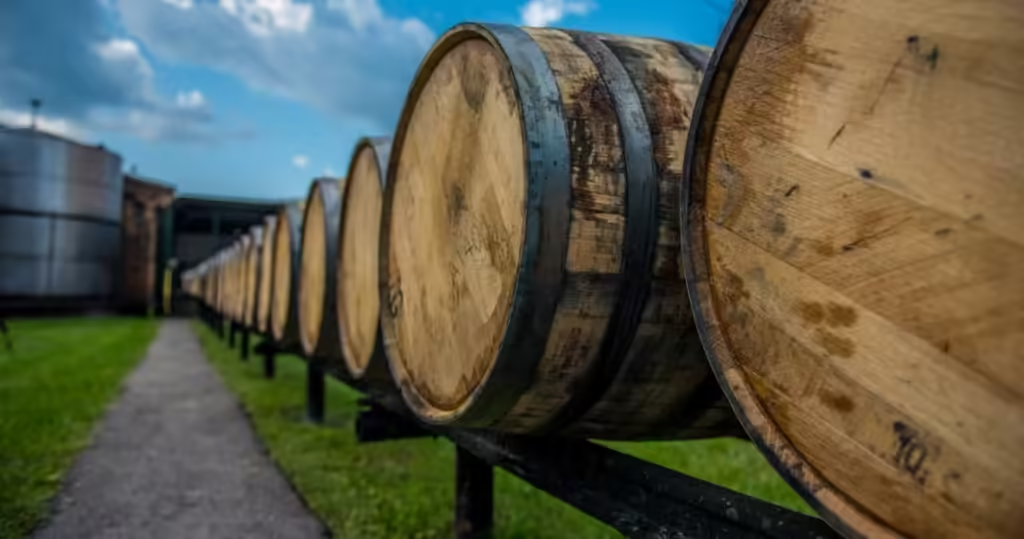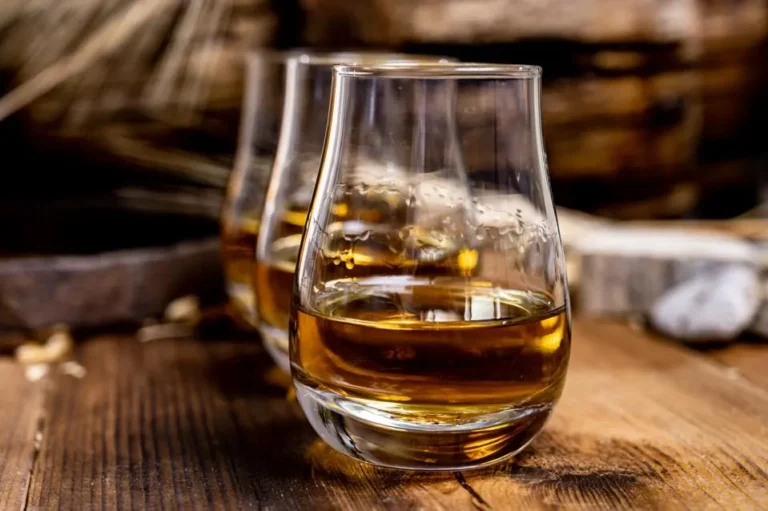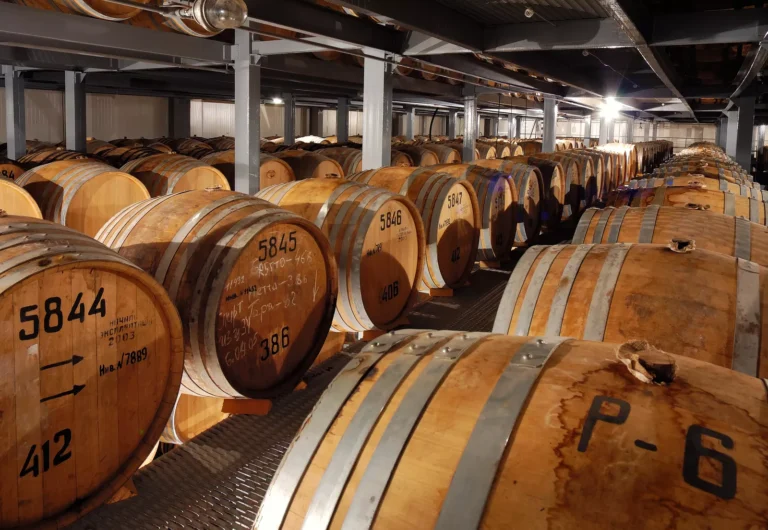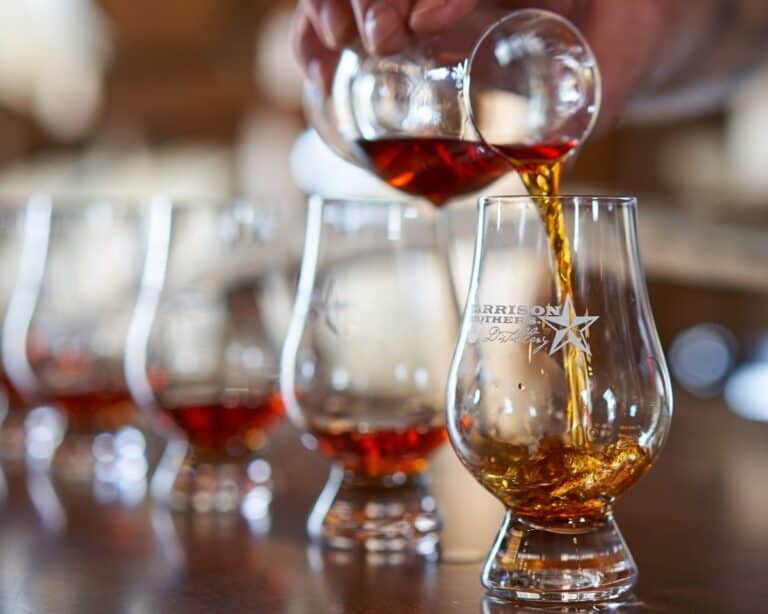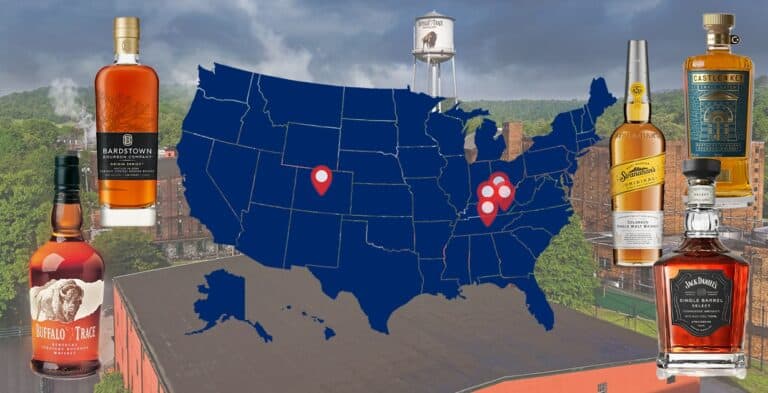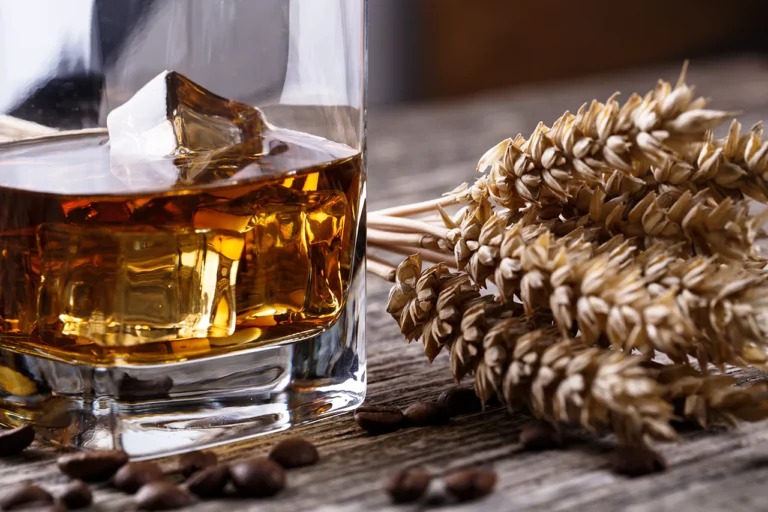Sustainability Practices in Bourbon Production
Bourbon, the quintessential American spirit, has long been celebrated for its rich flavors and storied history. However, like many industries, bourbon production faces significant environmental challenges. From water and energy consumption to waste generation, the traditional processes can leave a hefty environmental footprint. Thankfully, the bourbon industry is increasingly embracing sustainability, striving to balance tradition with eco-friendly innovations.

In this article, we’ll delve into the environmental impacts of bourbon production, highlight sustainable practices in bourbon production by distilleries, explore innovations in eco-friendly distillation, and examine case studies of sustainable bourbon brands.
Environmental Impact of Bourbon Production
The environmental impact of bourbon production is multifaceted, involving water use, energy consumption, and waste management. Understanding these impacts is crucial for appreciating the efforts being made to mitigate them.

Water Use and Management
Water is a vital component in bourbon production, used extensively in the mashing, fermentation, and cooling processes. Traditional bourbon production can require up to 10 gallons of water for every gallon of bourbon produced. This significant water use can strain local water resources, especially in areas facing water scarcity.
- Water Sources Distilleries often draw water from local rivers, lakes, and aquifers. Ensuring the sustainability of these water sources is essential for the long-term viability of bourbon production. Over-extraction can lead to depletion of water bodies, affecting both the environment and local communities.
- Water Treatment and Recycling Modern distilleries are investing in advanced water treatment systems to recycle water within their processes. These systems not only reduce the overall water footprint but also help in maintaining the quality of water discharged back into the environment.
Energy Consumption
The distillation process in bourbon production is energy-intensive. Heating the mash to extract alcohol and then cooling it down consumes vast amounts of energy. Conventional distilleries often rely on fossil fuels, contributing to greenhouse gas emissions and climate change.
- Energy Sources Traditionally, distilleries have relied on coal, natural gas, and oil for their energy needs. However, the shift towards renewable energy sources such as solar, wind, and hydroelectric power is gaining momentum, driven by the need to reduce carbon footprints.
- Energy Efficiency To address energy consumption, distilleries are investing in energy-efficient technologies and practices. This includes using heat exchangers to reclaim heat from the distillation process, upgrading to energy-efficient boilers, and incorporating solar panels to offset electricity use.
Waste Generation
Bourbon production generates substantial waste, including spent grains, wastewater, and emissions from fermentation. Spent grains, a byproduct of the mashing process, can pose disposal challenges, while wastewater from distillation can contain contaminants harmful to the environment if not properly treated.
- Spent Grains Management Many distilleries are finding innovative ways to repurpose spent grains, such as using them as livestock feed or converting them into biofuels. This not only reduces waste but also provides additional revenue streams for distilleries.
- Wastewater Treatment Proper treatment of wastewater is essential to prevent environmental contamination. Distilleries are adopting advanced treatment systems to ensure that the water released into the environment meets regulatory standards and does not harm local ecosystems.
- Emissions Control Controlling emissions from fermentation and distillation processes is another critical aspect. Technologies such as carbon capture and storage (CCS) are being explored to reduce greenhouse gas emissions from bourbon production.
Sustainable Practices by Distilleries
Many distilleries are adopting sustainable practices to reduce their environmental footprint. These initiatives range from water conservation and energy efficiency to waste reduction and renewable energy use.
Water Conservation Strategies
Distilleries are implementing various water conservation measures, such as recycling water used in the cooling process and using advanced filtration systems to purify wastewater for reuse. By optimizing water use, distilleries can significantly reduce their overall consumption and lessen their impact on local water resources.
- Reusing Cooling Water Recycling cooling water is a straightforward yet effective method to conserve water. By reusing water in multiple cooling cycles, distilleries can cut down on the total volume of water needed.
- Rainwater Harvesting Some distilleries are also investing in rainwater harvesting systems. Collecting and using rainwater for non-potable purposes, such as cleaning and cooling, further reduces reliance on local water sources.
Energy Efficiency Measures
To address energy consumption, distilleries are investing in energy-efficient technologies and practices. This includes using heat exchangers to reclaim heat from the distillation process, upgrading to energy-efficient boilers, and incorporating solar panels to offset electricity use.
- Heat Recovery Systems Heat recovery systems capture and reuse heat generated during distillation. This not only reduces the energy needed for heating processes but also cuts down on operational costs.
- Upgrading Equipment Modernizing distillery equipment with energy-efficient alternatives can result in substantial energy savings. For example, switching to LED lighting and high-efficiency motors can reduce electricity consumption.
Waste Reduction and Recycling
Waste reduction is another critical area of focus. Many distilleries are finding innovative ways to repurpose spent grains, such as using them as livestock feed or converting them into biofuels. Additionally, distilleries are treating and recycling wastewater to minimize environmental contamination.
- Biofuel Production Spent grains can be converted into biofuels through processes such as anaerobic digestion. This not only diverts waste from landfills but also provides a renewable energy source for distillery operations.
- Composting Composting spent grains is another eco-friendly option. The compost can be used to enrich soils, supporting local agriculture and reducing the need for chemical fertilizers.
Renewable Energy Adoption
The shift towards renewable energy is gaining momentum in the bourbon industry. Some distilleries are harnessing wind, solar, and hydroelectric power to meet their energy needs. This transition not only reduces reliance on fossil fuels but also cuts down on greenhouse gas emissions.
- Solar Power Solar panels can be installed on distillery rooftops or nearby land to generate electricity. This clean energy source helps to offset the carbon footprint of bourbon production.
- Wind Energy Distilleries located in windy areas can benefit from installing wind turbines. Wind energy provides a consistent and renewable power source that can significantly reduce reliance on non-renewable energy.
Innovations in Eco-Friendly Distillation
Innovation is key to achieving greater sustainability in bourbon production. Distilleries are exploring cutting-edge technologies and techniques to enhance eco-friendly distillation processes.
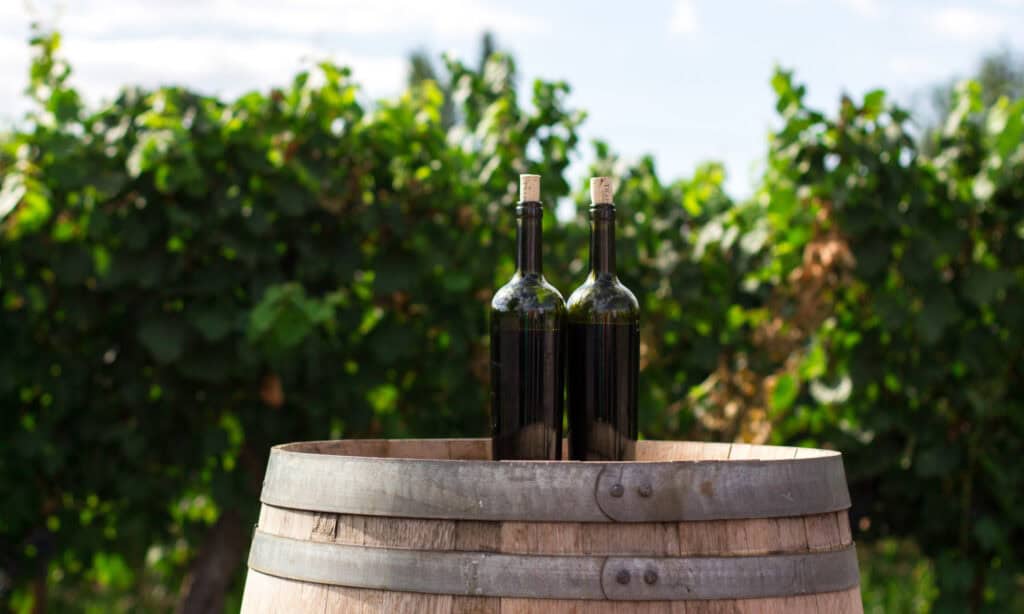
Green Chemistry in Distillation
Green chemistry focuses on designing processes that minimize environmental impact. In bourbon production, this can involve using catalysts that reduce energy requirements or developing fermentation methods that produce fewer byproducts and emissions.
- Catalytic Distillation Catalytic distillation uses catalysts to enhance the separation of alcohol from the mash, reducing the energy needed for distillation. This method not only lowers energy consumption but also increases the efficiency of alcohol production.
- Enzyme Technology Enzyme technology can improve the efficiency of the fermentation process. Enzymes break down starches in grains more effectively, leading to higher alcohol yields and reduced waste.
Closed-Loop Systems
Closed-loop systems are designed to maximize resource efficiency by reusing waste products and minimizing emissions. In bourbon production, this can mean capturing and reusing carbon dioxide from fermentation or reclaiming heat from distillation for other processes.
- CO2 Capture and Reuse Capturing carbon dioxide produced during fermentation and reusing it in other processes helps to reduce greenhouse gas emissions. This approach can also create a closed-loop system that enhances overall sustainability.
- Heat Reclamation Reclaiming heat from the distillation process and using it for other purposes, such as heating buildings or water, increases energy efficiency and reduces the need for additional energy sources.
Advanced Fermentation Techniques
Advancements in fermentation techniques are helping distilleries reduce their environmental footprint. For example, using genetically engineered yeast strains can increase alcohol yield and reduce the amount of raw materials needed, while also producing fewer byproducts.
- Engineered Yeast Strains Genetically engineered yeast strains are designed to ferment more efficiently, resulting in higher alcohol yields and reduced waste. These yeast strains can also be tailored to produce fewer undesirable byproducts, improving the quality of the final product.
- Continuous Fermentation Continuous fermentation systems allow for a steady production of alcohol, reducing the need for batch processing and increasing overall efficiency. This method can also lower energy consumption and waste generation.
Sustainable Packaging
Packaging is another area ripe for innovation. Distilleries are exploring sustainable packaging options, such as biodegradable bottles and labels, to reduce waste and environmental impact. Some are even developing packaging materials made from spent grains, creating a closed-loop system.
- Biodegradable Bottles Using biodegradable materials for bottles and packaging helps to reduce plastic waste. These materials break down naturally over time, minimizing their impact on the environment.
- Recycled Packaging Recycled packaging materials, such as paper and glass, are increasingly being used by distilleries. This reduces the demand for new raw materials and promotes a circular economy.
Case Studies of Sustainable Bourbon Brands
Several bourbon brands are leading the way in sustainability, demonstrating that eco-friendly practices can go hand-in-hand with high-quality production.
Maker’s Mark
Maker’s Mark has implemented a range of sustainable practices, from water conservation and energy efficiency to waste reduction. The distillery uses a state-of-the-art wastewater treatment facility and has reduced its water usage by recycling water in the cooling process. Additionally, Maker’s Mark is transitioning to renewable energy sources to power its operations.
- Water Conservation at Maker’s Mark Maker’s Mark has installed advanced filtration systems to recycle water used in the cooling process, significantly reducing its overall water consumption. This initiative not only conserves water but also lowers the distillery’s environmental impact.
- Renewable Energy Initiatives The distillery is investing in renewable energy sources such as solar panels to reduce its reliance on fossil fuels. This transition is part of Maker’s Mark’s broader commitment to sustainability and reducing its carbon footprint.
Woodford Reserve
Woodford Reserve is committed to sustainability through initiatives like using locally sourced ingredients and implementing energy-efficient technologies. The distillery has also developed a robust recycling program for spent grains and packaging materials. Their efforts extend to the use of sustainable farming practices for the grains used in their bourbon.
- Local Sourcing By sourcing ingredients locally, Woodford Reserve supports local farmers and reduces the environmental impact associated with transportation. This practice also ensures the freshness and quality of the grains used in their bourbon.
- Energy Efficiency Upgrades Woodford Reserve has invested in energy-efficient technologies, such as heat exchangers and high-efficiency boilers, to reduce energy consumption. These upgrades help the distillery operate more sustainably and lower operational costs.
Buffalo Trace
Buffalo Trace has made significant strides in sustainability by investing in renewable energy and water conservation. The distillery operates its own wastewater treatment plant and has implemented a comprehensive recycling program. Buffalo Trace is also exploring innovative fermentation techniques to enhance efficiency and reduce waste.
- Wastewater Treatment Plant Buffalo Trace’s wastewater treatment plant ensures that water released into the environment meets regulatory standards. This facility treats wastewater on-site, reducing the distillery’s environmental impact.
- Innovative Fermentation Buffalo Trace is exploring advanced fermentation techniques to increase alcohol yield and reduce waste. These innovations help the distillery produce high-quality bourbon more sustainably.
Wild Turkey
Wild Turkey has embraced sustainability through initiatives like using solar panels to generate electricity and implementing water-saving technologies. The distillery also focuses on sustainable sourcing of raw materials and has developed a program to recycle spent grains as animal feed.
- Solar Power at Wild Turkey Wild Turkey has installed solar panels to generate a portion of its electricity. This renewable energy source helps the distillery reduce its carbon footprint and reliance on fossil fuels.
- Water-Saving Technologies The distillery has implemented water-saving technologies, such as low-flow fixtures and water recycling systems, to conserve water. These measures help Wild Turkey operate more sustainably and reduce its environmental impact.
Four Roses
Four Roses is dedicated to reducing its environmental impact through water and energy conservation. The distillery uses advanced water filtration systems to recycle water and has implemented energy-efficient technologies to reduce its carbon footprint. Four Roses also supports local farmers by repurposing spent grains as livestock feed.
- Advanced Water Filtration Four Roses uses advanced filtration systems to recycle water used in the distillation process. This not only conserves water but also ensures the quality of the water used in bourbon production.
- Energy-Efficient Technologies The distillery has invested in energy-efficient technologies, such as high-efficiency boilers and heat exchangers, to reduce energy consumption. These upgrades help Four Roses operate more sustainably and lower operational costs.
FAQs
Conclusion
Sustainability in bourbon production is not just a trend but a necessary evolution for the industry. By embracing eco-friendly practices, distilleries can reduce their environmental impact while continuing to produce high-quality bourbon. From water conservation and energy efficiency to innovative distillation techniques and sustainable packaging, the bourbon industry is making significant strides towards sustainability. As consumers, supporting these efforts by choosing sustainably produced bourbon can help drive further change and ensure the longevity of this beloved spirit.
Disclosure: Our blog contains affiliate links to products. We may receive a commission for purchases made through these links. However, this does not impact our reviews and comparisons. We try our best to keep things fair and balanced, in order to help you make the best choice for you.

